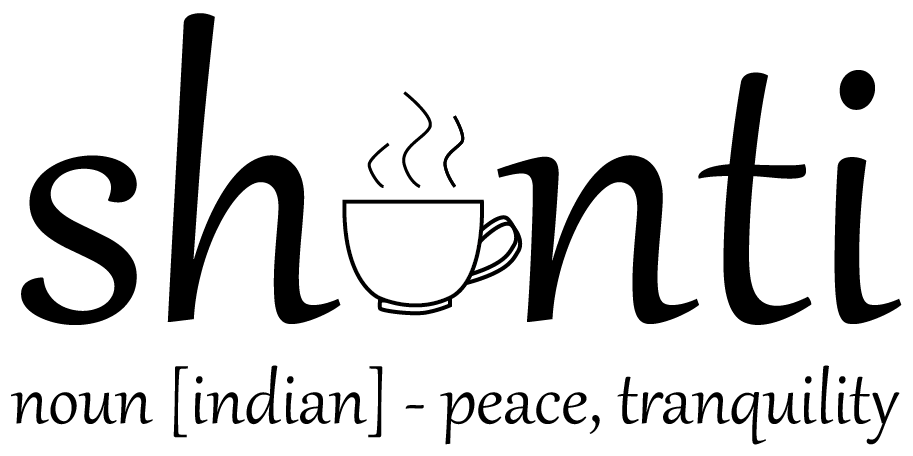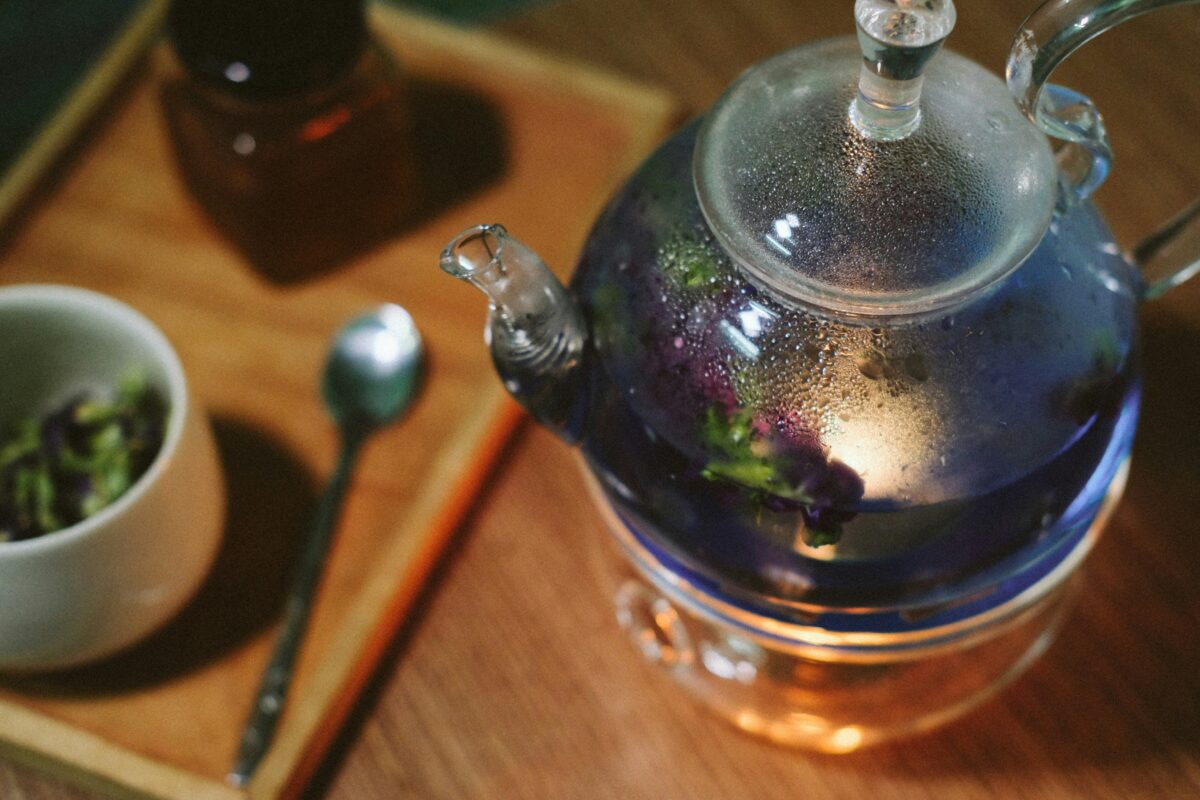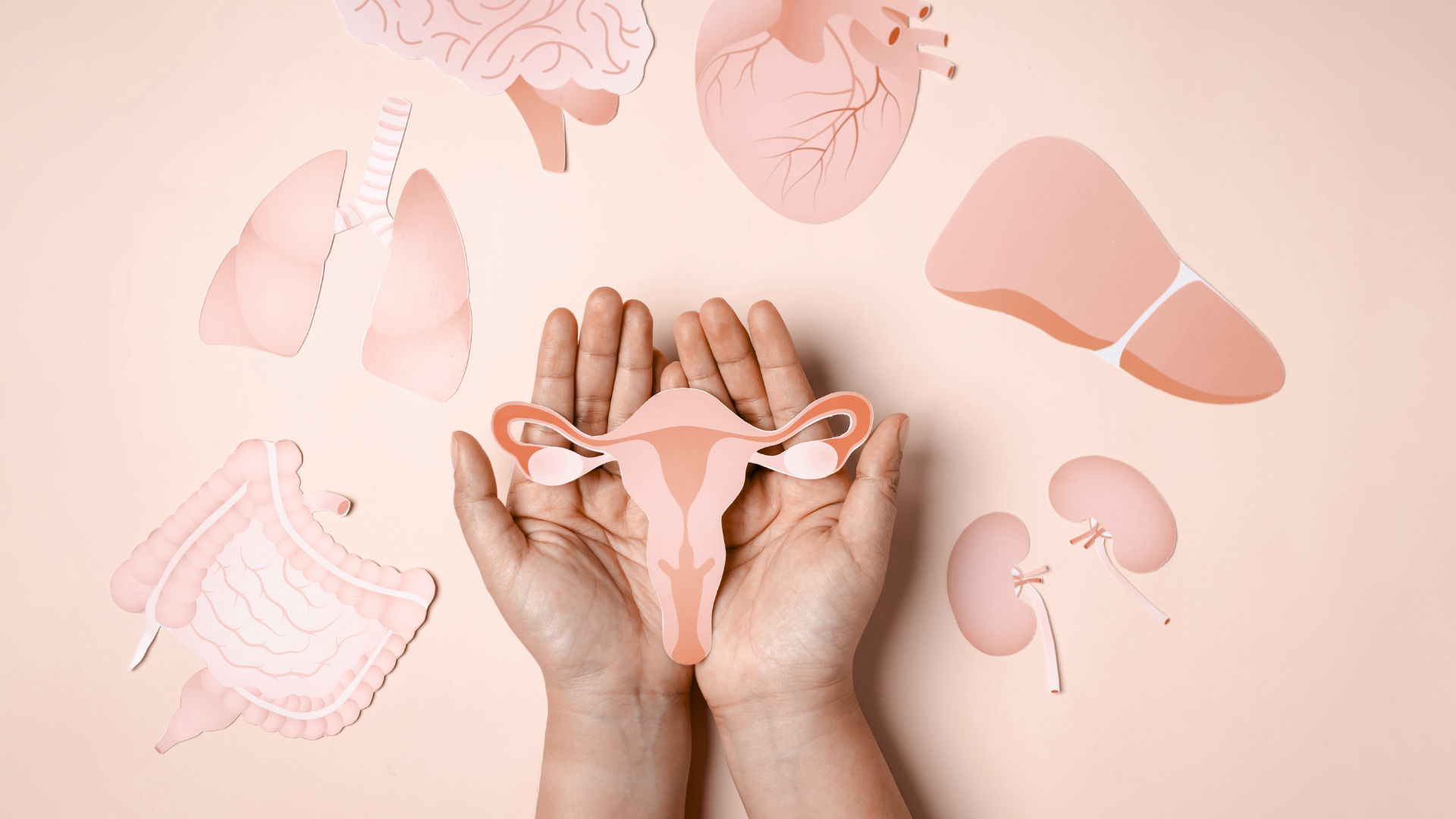Introduction
Brewing a hot mug of herbal goodness is now so much more than just a remedy for the sniffles.
It’s now a wellness trend on the rise, as a new way to nourish the body, boost immunity and help yourself detox. So choosing the right herbal tea to specifically support your needs will do wonders! But here’s the catch – brewing it properly makes all the difference. This all comes down to a couple of things, a few being the right steeping time, water temperature, and brewing method can enhance both the flavor and medicinal properties of herbal infusions.
Whether you’re sipping on our hormone happiness to aid morning digestion, Blissful Buzz for a natural energy boost or Slumber Shanti for relaxation, understanding how to brew herbal tea correctly ensures you’ll get the most of Shanti from every cup! In this blog we’ll share all the brewing basics that are easily dismissed when making a hot cuppa.
Why Brewing the Right Way Matters
Brewing the perfect cup of herbal tea requires more than simply dunking a tea bag into hot water! It’s a science that influences not only the taste but also the potency of your tea. If you want to experience the full benefits of herbal teas, from boosting immunity to soothing anxiety or balancing hormones, proper brewing techniques are essential. Every herb, root, and flower in your tea blend contains active compounds like antioxidants, flavonoids, and calming agents that require the right temperature and steeping time to be fully extracted.
The Science of Steeping: Unlocking the Goodness
Steeping is the process of extracting active compounds from plants into water. Different herbs contain unique bioactive components that require specific temperatures and steeping times to be fully released. For example:
- Polyphenols & Antioxidants – Found in herbs like chamomile and hibiscus, these compounds help combat oxidative stress and inflammation. However, if steeped for too short a time, their full benefits may not be extracted.
- Essential Oils & Aromatics – Herbs like peppermint and lavender contain volatile oils responsible for their signature scents and soothing effects. Steeping too long or using boiling water can cause these delicate oils to evaporate, reducing their potency.
2 - Bitter Alkaloids & Tannins – Certain herbs, like dandelion and green tea, contain tannins that can become overpoweringly bitter if over-steeped. Finding the right balance is key to maintaining both flavour and benefits.
This is why knowing how long to steep and at what temperature can make or break your tea experience. Over-steeping can result in bitterness, while under-steeping can leave your tea weak and ineffective. Short steeping times are great for herbs like peppermint, which can be refreshing and flavourful in just 3-5 minutes. However, if you’re brewing roots like ginger or burdock, you’ll need to let them steep for a bit longer – around 7-10 minutes – to allow their potent antioxidants and anti-inflammatory properties to infuse the water fully.
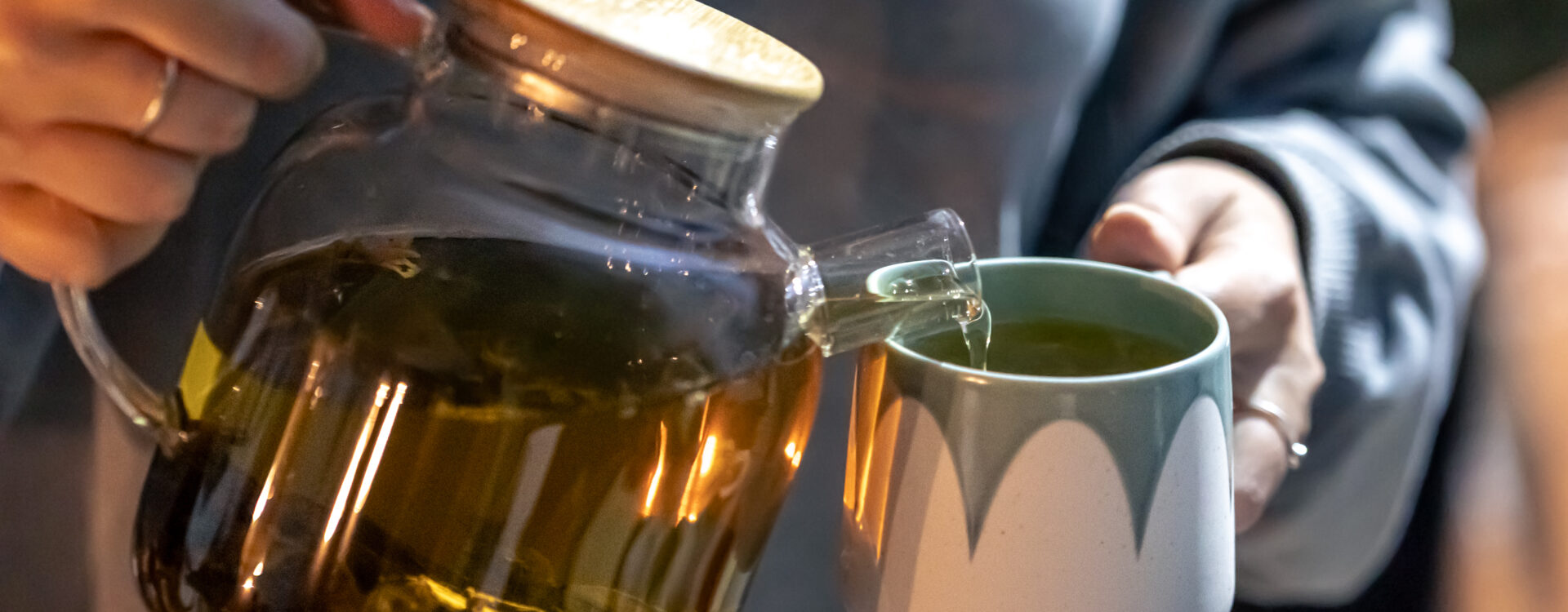
Step-by-Step Guide to Brewing Herbal Tea
Choosing the Right Tools
Having the right tools can make a huge difference in the brewing process! Whether you prefer loose-leaf tea or tea bags, choosing high-quality, eco-friendly brewing accessories enhances both the taste and sustainability of your tea ritual.
Essential Teaware for Herbal Tea Brewing
- Teapot with a built-in infuser – Perfect for brewing multiple cups at once while allowing herbs to expand fully.
- Tea infuser or tea strainer – A great option for single servings, preventing loose leaves from escaping into your cup.
- Reusable cotton or biodegradable tea bags – An eco-friendly alternative to disposable tea bags, reducing waste while keeping your brew clean.
- Temperature-controlled kettle – Ensures you heat your water to the ideal temperature for different herbal teas, preserving their delicate flavors and nutrients.
Perfect Water Temperature and Steeping Time
Here’s a guideline of the optimal temperatures and steeping time for some different herbs!
Herbal Tea | Ideal Temperature | Steeping Time | Best Brewing Method |
Chamomile | 85°C (185°F) | 5-7 minutes | Loose leaf or tea bag |
Peppermint | 90°C (194°F) | 7-10 minutes | Loose leaf for stronger taste |
Raspberry Leaf | 95°C (203°F) | 8-10 minutes | Covered steeping for full extraction |
Ginger Root | 100°C (212°F) | 10-15 minutes | Simmer or boil for stronger infusion |
Hibiscus | 95°C (203°F) | 5-7 minutes | Loose leaf for a tart, vibrant brew |
Dandelion Root | 100°C (212°F) | 10-15 minutes | Decoction (simmer for deeper extraction) |
Pro Tip: Always cover your tea while steeping! This helps trap essential oils and volatile compounds, ensuring you get the most nutrients and flavour in your cup.
Measuring Tea for the Best Brew
The right tea-to-water ratio is key to achieving the perfect cup. Too much tea can make your infusion overpowering, while too little results in a weak, flavorless brew.
How Much Tea Should You Use?
- Loose-leaf tea: Use 1-2 teaspoons per 250ml (8oz) of water for a balanced, flavorful cup.
- Root-based teas (ginger, licorice, burdock): Use 1 tablespoon per 250ml (8oz) of water to extract the deeper, earthy flavors.
- Pre-packaged tea bags: Most are pre-measured, and steeping longer can enhance the strength of the infusion.
Brewing Tea for Maximum Health Benefits
By using the right brewing techniques, you can unlock targeted benefits such as stress relief, better digestion, and improved sleep!

Brewing for Stress Relief & Relaxation
If you’re feeling overwhelmed, a well-brewed stress-relieving herbal tea can work wonders for your nervous system. Herbs like chamomile, lavender, and ashwagandha contain natural compounds that promote relaxation and reduce cortisol levels.
Best Brewing Method for Stress-Relief Teas:
- Use water heated to 85-90°C to preserve delicate essential oils.
- Steep for at least 5-7 minutes to extract calming flavonoids and antioxidants.
- Cover your cup while steeping to retain stress-relieving volatile oils.
☕ Recommended Tea: Our Hormone Happiness Tea for a relaxing morning or Blissful Buzz to help you through a stressful afternoon
Brewing for Digestion & Gut Health
Struggling with bloating, indigestion, or sluggish digestion? Herbal teas like peppermint, ginger, and fennel stimulate digestion, soothe the gut, and reduce inflammation.
Best Brewing Method for Digestive Teas:
- Use boiling water (100°C/212°F) to extract digestive-boosting compounds.
- Steep for 10-15 minutes for maximum gut-healing benefits.
- For root-based teas (like ginger or dandelion), use a decoction method—simmering the herbs for 10-15 minutes for stronger extraction.
☕ Recommended Tea: Ginger and dandelion root, found in our Hormone Happiness Tea, are excellent for bloating, liver detox, and gut health.
Brewing for Deep Sleep & Relaxation
A proper bedtime tea can transform your sleep quality by calming the nervous system, reducing cortisol, and increasing melatonin production.
Best Brewing Method for Sleep Teas:
- Heat water to 90-95°C to avoid burning delicate sleep-inducing compounds.
- Steep for 8-10 minutes to extract sedative-like flavonoids
- Drink 30-60 minutes before bed for the best effects.
☕ Try This: Our Slumber Shanti Tea is designed to ease you into a deep, restful sleep with calming herbs like chamomile & valerian root
For more insight on the best herbs to support sleep, check out this 10 herbs for sleep struggles guideline!
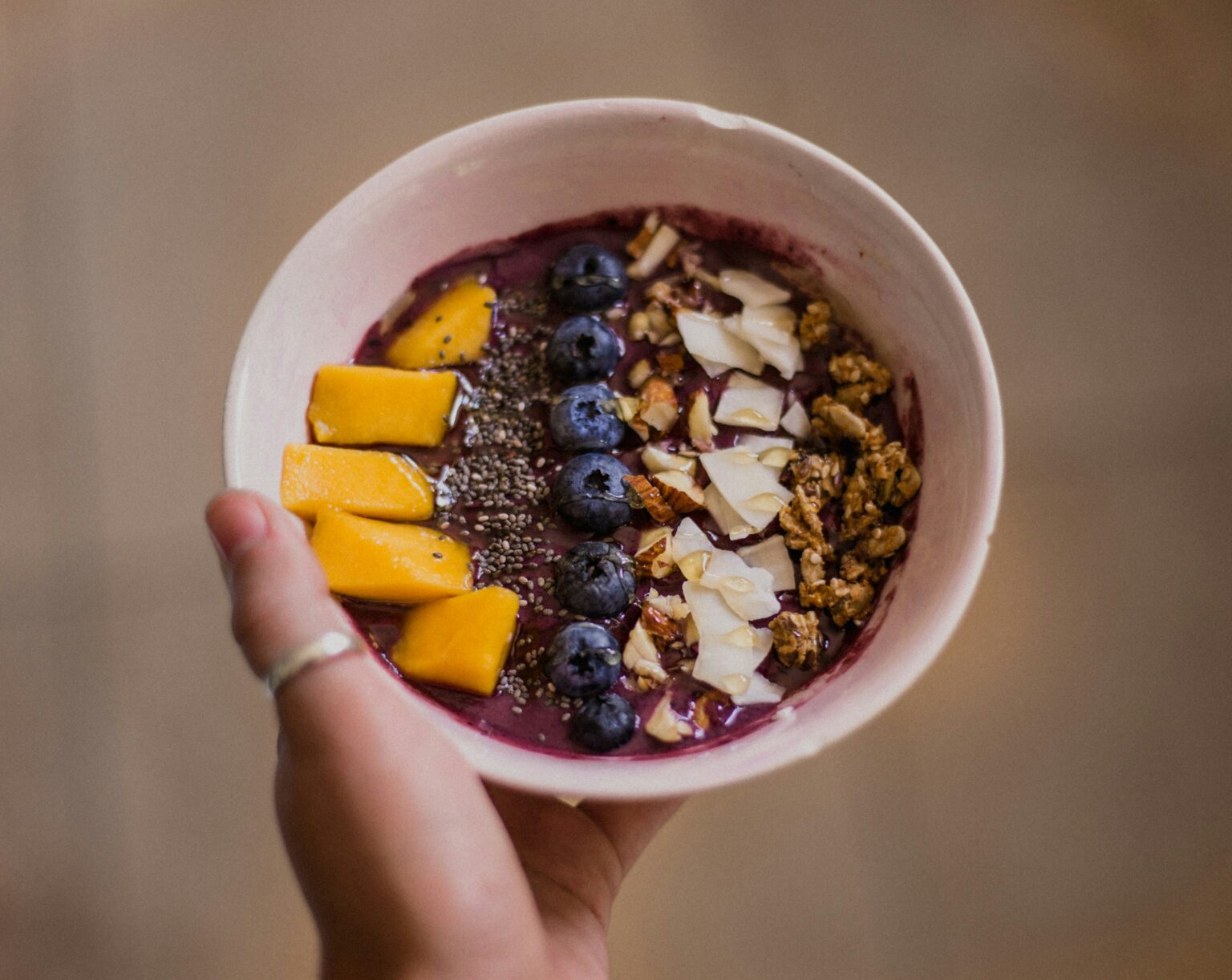
Herbal Tea Pairings for Maximum Benefits
Pairing herbal teas with the right foods can elevate their benefits, making your wellness routine even more powerful. The right combinations can enhance nutrient absorption, balance blood sugar, and amplify the functional properties of both the tea and the meal! Here are a couple of great pairings to try out…
1. Minty Tea + Light Salads for Digestion & Refreshment
Peppermint/Spearmint/Mint tea is known for its digestive benefits, cooling sensation, and ability to reduce bloating. It contains menthol, which relaxes the muscles and promotes smoother digestion. Pairing peppermint tea with a light salad enhances its refreshing qualities while keeping your meal easy on the stomach.
2. Chamomile Tea + Oatmeal for a Calming, Sleep-Boosting Effect
Chamomile tea is famous for its calming and sleep-inducing properties due to its high levels of apigenin. When paired with oats, which contain melatonin and magnesium, this duo becomes a sleep-friendly little meal!
3. Ginger Tea + Dark Chocolate for an Antioxidant & Energy Boost
Ginger tea is anti-inflammatory, boosts circulation, and supports digestion. When combined with dark chocolate, which contains flavonoids that improve brain function, this pairing can enhance mental clarity, energy, and gut health.
Conclusion
Brewing herbal tea the right way is a beautiful ritual that enhances both the flavor and the benefits of your cup. By understanding steeping times, temperatures, and the best methods for different herbs, you can unlock the full potential of your tea, whether you’re looking for relaxation, digestion support, or an energy boost.
So next time you brew a cup, take an extra moment to steep with intention – your body (and taste buds) will thank you!
Ready to experience the power of perfectly brewed tea? Explore our signature teas to get you brewing!
